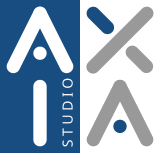The work conducted by AXIA STUDIO focused on food safety, with particular emphasis on analysis of data from past inspections. The goal was to identify correlations between different inspection outcomes using data science techniques to improve the effectiveness of future inspections.
AXIA STUDIO developed heatmaps for Campania and Lombardy regions to represent correlations between the compliance and non-compliance found on certain items. The analysis highlighted, for instance, that non-compliance related to animal welfare during slaughter has a strong correlation (0.75) with raw materials and finished products. These tools help predict and optimise inspections by utilising models based on historical data.
Through the use of machine learning techniques, such as decision trees and linear regressions, the aim was to develop predictive tools to better guide inspectors during the inspection procedures.
The findings from the project formed the knowledge base for a subsequent project aimed at providing inspectors with an AI capable of supporting their decision-making processes regarding inspection planning. This AI system relies on risk assessments based on predictive algorithms, enabling inspectors to prioritise and optimise their control activities more effectively. By leveraging predictive models, the AI can assist in identifying potential areas of non-compliance and support targeted inspections, improving both the efficiency and precision of the inspection process.
Project: Reforming Regulatory Inspections in Italy at Regional and National Level (2021-2024)
Beneficiary: Health Protection Agencies in Lombardy and Campania regions (Italy)
Project developed by: OECD – Organization for Economic Co-operation and Development


